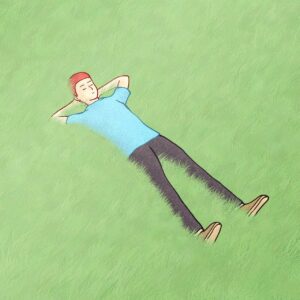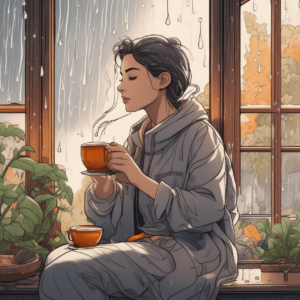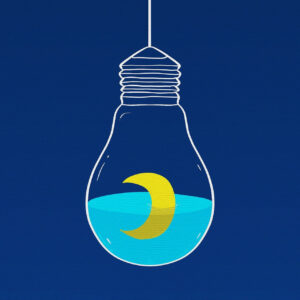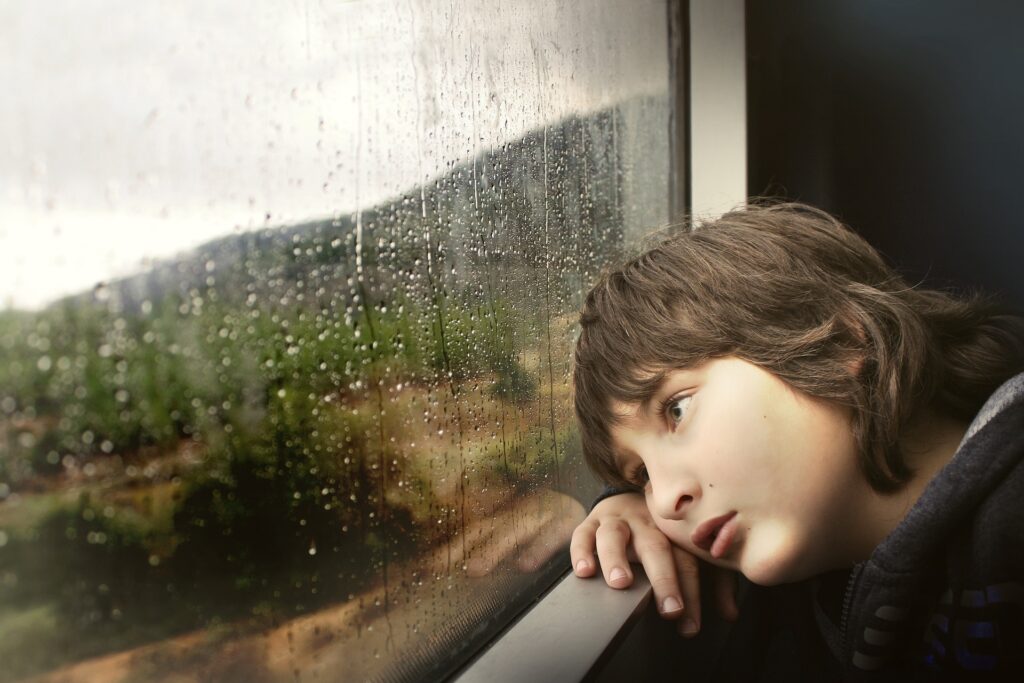Seasonal Affective Disorder. Here it comes! The end of summer can hit hard like a cold, unwelcome slap to the face. In the UK, we’re used to this effect. Rarely is there an ‘easing out of summer’ for us folk. Autumnal storms like to appear from nowhere. All the wind and rain that can be summoned up will arrive. When summer is over, we know about it.
Some of us rejoice in the cooler weather and cosy nights. Others may suffer from shorter days, lack of sunshine or the pressure of heating a home for months. To stay comfortable and content until spring.
Are you one of those who feels an instant state of winter blues, sadness, depression and lack of motivation? You might just be suffering from Seasonal Affective Disorder.
Fear not! You’re not alone. There are many ways to manage the darker, cooler seasons. Let’s talk about how we can ride through these months with positivity and vigour!
What is Seasonal Affective Disorder?

Seasonal Affective Disorder (SAD), often referred to as ‘the winter blues’ is the feeling of gloominess coming out of summer. The thought of a long, prolonged Winter can haunt some of us. When our mind is focused on the images of cold, grey, damp and short darker months some of us feel this overwhelming sense of dread.
Typically, this is felt more in the northern hemisphere due to less consistency of sunshine and warmth throughout the year. Summers are fleeting, with cold, consistently rainy days and darkness in between.
They can feel like long seasons, waiting on that spring warmth for what seems like forever! Typically lasting from October to March/April, statistically.
How do we combat the effects of Seasonal Affective Disorder?
As the seasons shift, we must also do the same. We need to eat slightly differently, sleep a fraction more and ideally work with a little less stress and physicality. Respectfully, this is something that can’t be altered for many. We’re typically expected to work with the same attitude and output all the year through.
We can, however, adapt our morning and evening routines and prioritise our lifestyle to help counteract the onset of winter blues.
Sleep

Starting with sleep, we all know how we feel when we don’t get enough of it. Too much sleep can also have an effect on our mood and energy. The right balance is important.
It is very important to prioritise sleep in general, no matter which season but particularly important in the winter months. Poor sleep will affect your entire day ahead and is very hard to catch up through a busy week. Regularity is important.
According to new research published in the journal Frontiers in Neuroscience that was aimed at studying seasonal sleep variations with populations living in urban areas. They were asked to sleep with regular sleep timings, without the use of an alarm clock.
Slow wave (deep sleep) was shown to remain relatively steady throughout the year, peaking in the winter months. Deep sleep is typically induced when room temperatures are lower. REM sleep did the opposite, declining in the winter months.
This shows us that we require more rested sleep in these colder months. We could suggest that it’s our way of inducing a mild, partial hibernation. Although, studies tell us that humans don’t hibernate like animals. There is a physiological change, with good reason. These are the lower state of energy usage months.
Summary: Make sure you get your quality sleep!
Diet

Our diet affects almost every aspect of our bodies. Without getting too ‘sciency’ here, let’s just say that bad input equals bad output when it comes to our diets.
With poor food and drink choices, our energy is decreased, our sleep is compromised, and our physical and sexual energy is down-regulated. It has so many knock-on effects that we don’t even realise or care to think about as much as we should.
We are generally angrier and more depressed, living this loop of ‘woe is me’ self-talk.
It is important to set yourself on that seasonal runaway with plenty of fuel and vigour otherwise half the battle is already lost!
Scrap the junk food and sugary drinks. Keep alcohol to a minimum. We forgive you for Christmas, by the way!
Summary: Eat as healthy as possible, and nourish the body and mind. If you don’t, then YOU WILL FEEL LOW, no matter what.
Mindful Practises

Mindful practises can include a variation of meditation, reading, listening to music and walking in nature, to name a few!
Anything that can focus your mind into something of interest, or simply just getting outside and being amongst nature, those simple, down-to-earth, stressless activities. These are all proven to stimulate and rewire the brain for the better.
We highly recommend a morning meditation or yoga/stretch session. Possibly a coffee and an inspiring read afterwards. This could be a biased opinion, but it works for us. It might work for you, too!
Whichever you choose to do, make sure you can implement some of these practices to set your day up with the right frame of mind from the get-go.
Summary: Engage in some mindful practises to start your day with intention, focus and excitement. Rest your head to sleep knowing you were too distracted to feel low because of the weather.
Tools

There are a few tools you can use to help with mood and relaxation. Also a few items on the market that can help, too.
Tools we like to include:
A Lumie-style sunrise/sunset lamp: These lamps mimic the calming of sunrise and a steady awakening in the morning. Dark mornings are tough at the best of times, these really help to waken the senses.
There are many choices on Amazon: Lumie Bodyclock
A cold shower: It’s no secret we like a cold shower! The moment you rise from your slumber get in that cold water! Hey, it’s tough but studies show significant evidence of prolonged dopamine sustained throughout the day due to a few minutes of cold exposure.
Baths: Baths are a great way to relax at the end of the day! The warmth will help you sleep better due to your body being forced to lower its core temperature afterwards. A cooler core temperature is great for a good nights sleep.
Why not upgrade your bath with Magnesium Epsom salts, these are great for muscular recovery after a busy day on your feet!
Red Light Therapy: Red light panels are becoming more and more affordable and with increasing studies showing their benefits we would advise grabbing yourself one! Red Light can help with repairing the body in so many ways due to the way it affects our cells.
Check out Red Light Rising for more information.
Seasonal Affective Disorder by Seek and Discover
